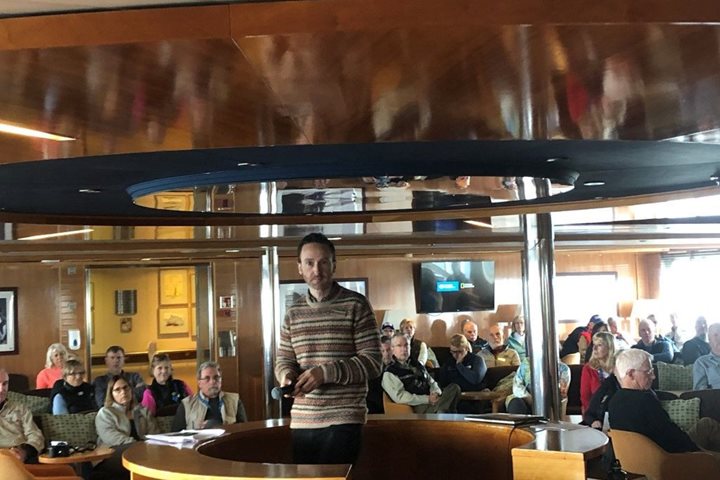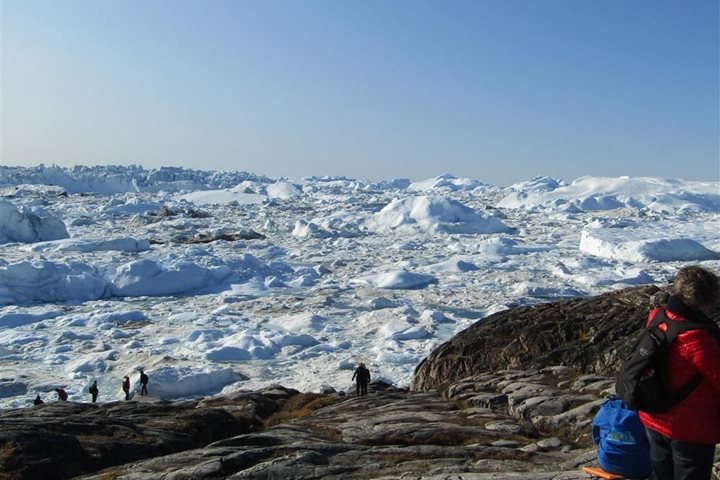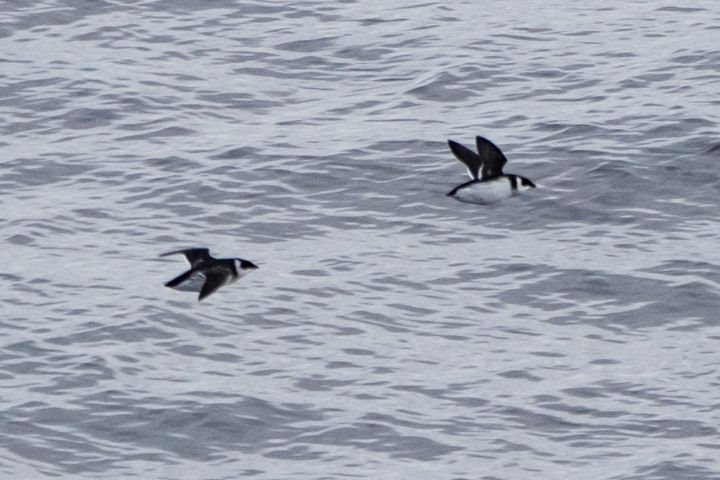Today early in the morning National Geographic Explorer anchored in the lovely fiord of Dundas Harbour on the southern shore of Devon Island. One side of the fiord featured a magnificent cliff exposing a three-billion-year long geological history of this area.
After an early breakfast we started debarkation. Our Zodiacs had to slow pace as bundles of curious harp seals were swimming nearby and they are very sensitive to noise disturbance. Dundas Harbour is a location of two important archaeological and historic sites. Some 800 years back the Thule (ancestors of the Inuit) migrated to the Canadian Arctic from Alaska. They built sod housing near the entrance to Morin Point Fjord. That was during the Medieval warm period, where whales were then abundant in the area. The Thule were whale hunters, and the use of bowhead whale skulls found in the construction of their house structures confirm this.
The area was also used by the Royal Canadian Mounted Police (RCMP) as an outpost in early twentieth century to curb foreign whaling to protect Canadian sovereignty. They experienced great hardship in the area for the first three years until 1927 when Inuit were employed as hunters and guides to assist them.
Gyrfalcons spotted in this place in previous years apparently nested again this year and were checking us out as one of them flew over our heads. Muskoxen apparently stay around here, too, as we saw some recent footprints and scat but the animals themselves were not observed.
As we ate lunch, we started sailing northward along the eastern shore of Devon Island. Serguei Ponomarenko gave a presentation on how to read the Arctic land – a talk that was scheduled two days earlier but was canceled five minutes prior to its start due to our first polar bear sighting. Archeologist Lynda Gullason, who had the good fortune to lecture without surprise wildlife viewings, spoke about the cultural significance of the Morin Point site and the fact that the site is actively eroding due to ice rafting and of the challenges involved in saving the site.
Tomorrow we plan to reach Ellesmere Island.







